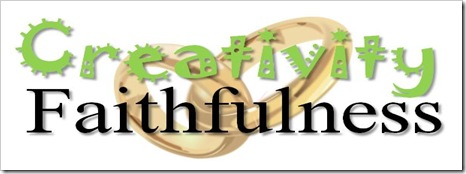Creativity and faithfulness are too often spoken of as competitors rather than cohorts. Creativity in preaching is often viewed with suspicion and described as needless innovation. To listen to some you might think the most faithful sermons are the least creative, the most drab sermons ever preached.
Listen instead to Dr. Luther in his lecture on Psalm 45,
But here our foolishness is apparent. Such foolish disciples are we that once we have heard the doctrine of eternal salvation, we think we have exhausted all there is of the Holy Spirit; we are soon sated, we throw the book from our hands, and we follow instead our fleshly inclinations and gain. It should be altogether different: since we see that to the Holy Spirit it is not wearisome to proclaim and portray the same matter continually, neither should we shrink from the work involved in learning it, particularly since the words of the Holy Spirit are such that they can never be learned sufficiently. So because of such foolishness or satiety we shall have to face graver retribution on Judgment Day, since the Holy Spirit will hold up to us the fact that He set down the doctrine of faith so diligently and depicted it in all possible hues, so much so that the herbs and flowers do not enjoy such great variety as there is in the Scriptures. Throughout Scripture He has presented such great variety in teaching and propounding one and the same thing, in order to keep us from giving up our study and to rouse us against the satiety from which we otherwise suffer. (( Luther, M. (1999). Luther’s works, vol. 12: Selected Psalms I (J. J. Pelikan, H. C. Oswald & H. T. Lehmann, Ed.) (Ps 26:5). Saint Louis: Concordia Publishing House.))
We must stop believing that faithfulness is simply being without error. That is but the first step in faithfulness. Due to our weak flesh, God is his faithfulness does not simply repeat the same Word to us in the same words over and over again. Because he wishes this Word to dwell in us, he says the same Word is so many ways that we are never given reason to be bored with it. He makes creativity the slave of that Word.
Pastors must here mimic God in their preaching. We must not think that our pursuit of faithfulness ends at purging error. We must make creativity the slave of the Word is our work as well. We must slave to take the one Word and place in into our hearers ears in so many arguments, metaphors, and images that they can not escape it wherever they look. It must be ever before them, bring them to faith and keeping them in faith. We must exhaust the richness of creativity resting in the scriptures and with great care use also the things before our modern eyes as to set forth this Word of life.
Creativity is like reason and all our senses. It can step out of it bounds and seek to rule. And when it does, it must be forcefully cast off its self-made throne. But when it remains at the service of the Word, we rejoice in it. We do not view it with suspicion but receive it as a gift that God himself uses to his end and gives to us to use towards those same end, the salvation of all people. The most faithful preaching is so creative in depicting the Word that the herbs and flowers envy its variety.
Creativity and faithfulness are too often spoken of as competitors rather than cohorts. They are cohorts and companions bound together by God himself. “What therefore God has joined together, let not man separate.â€


Phil,
this advice shouldn’t be limited to just preaching but for the entire liturgical life of the church. If there were a halt to the innovations in the liturgy of the Western Rite (which are done in the name of “creativity”), the preaching, I believe, would follow suit. This advice should also apply to hymn-writers of today, most of whom lack any musical or poetic abilities. Why not stick with the hymns of Lutheran Orthodoxy: good hymn tune writers like Nicolai, Cruger, Walther, Heerman, Bach, Schutz, Scheidt and good hymn writers like Gerhard?
Besides, creativity can also be code for heresy.